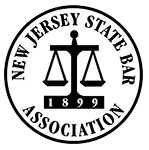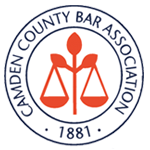Workers who are injured or contract an illness while on the job are eligible for workers’ compensation benefits. Many employers are required to have workers’ compensation insurance to cover employees’ medical costs and lost wages while they recover from a work-related injury. Like any insurance policy, however, the injury must meet certain criteria in order to be covered. If the incident occurred during the workday, but on an employee’s personal time, it may not be eligible for compensation.
The regulations for which companies must have workers’ compensation insurance vary by state. Some states require workers’ compensation insurance for any business with at least one employee, while other states have higher minimums, some as high as 15 employees. States also have different requirements for how they obtain workers’ compensation coverage; some allow employers to self-insure if they have the financial capacity, while others require companies to choose from a list of state-approved insurers.
Workers’ compensation insurance is designed to cover injuries and diseases that occur during the course of employment. The cause of the injury or illness must be related to the job, whether it was due to a hazard on the premises, a risk related to the job duties, or another factor. When determining eligibility for workers’ compensation, the courts will examine the circumstances of the incident, including where the employee was and what they were doing at the time of the injury.
Company Time versus Personal Time
When an employee is on a break, this is considered their own time, where they can do what they want. Workers may use this time to go off site to get food, run personal errands, make phone calls, or take care of other business that is not work-related. If an injury occurred during this time, it is likely that it will not be covered by workers’ compensation since they are off the clock. For example, if a worker steps off a curb and twists their ankle while picking up a sandwich, they would not receive workers’ compensation.
However, there may be exceptions for certain circumstances. If an employee is sent to purchase office supplies on behalf of the company and decides to pick up lunch during that trip, they may be able to submit a claim since they were completing errands during the course of employment. This can be difficult and will require a thorough account of how the employee spent their time. The distinction will hinge on whether this was a minor detour on a work-related errand or a significant departure from their job duties.
Similarly, if they are on a business lunch with clients or coworkers, this is within the scope of their employment and any injuries sustained would be covered. If the employee is considered on-call during their break and is required to report back to the office at any time, then any injuries sustained during that time would also be covered by workers’ compensation. The key in determining the compensability of a claim is whether the employee was furthering their own interests or the interests of the employer at the time of the injury.
Location of the Injury
Where the injury occurred can help determine whether the worker is eligible for benefits, but this is not a universal rule. In most cases, an injury sustained in the office or on the job site will be covered, unless an employee was engaging in voluntary, recreational activity at the time of the incident. If a worker eats lunch in designated eating area, such as a cafeteria on company grounds, this may be considered company time and injuries may be covered. However, if an employee takes a walk around company property for exercise, this is not considered a work-related activity.
Similarly, employees should not assume that if an injury occurs off company property, it will not be covered. If the employee was completing work-related tasks, then the injury would be covered regardless of where it occurred. This can include visiting work sites outside of the normal office environment, picking up supplies, meeting clients, and other activities that take place away from the office.
Other Potential Eligibility Factors
There are other circumstances that may cause confusion when it comes to workers’ compensation. Work events that take place off-site or outside of work hours, such as parties, picnics, or team-building activities, can be considered within the scope of employment if there is an expectation that employees should attend. If the event is voluntary or attended at the employee’s discretion, however, it may be considered personal time.
Work-related travel is usually covered if it is required to fulfill an employee’s duties. Employees sent on work errands can receive coverage for injuries incurred while traveling to or from their destination. Similarly, if an employee is sent on a business trip, they are considered on duty for the duration of the trip. A worker’s commute to and from their workplace is generally not covered, but there may be exceptions if the employee is driving a company-owned vehicle.
Employee conduct can be a major factor in determining eligibility for workers’ compensation benefits. If an employee is violating workplace safety regulations, and those actions resulted in an injury, they may be denied compensation. Courts will take into account the severity of the violation. Coverage will also likely be denied if the employee was intentionally trying to injure themselves or someone else, if they were under the influence of drugs or alcohol, or if they were committing a criminal offense at the time of the injury.
It is vital for injured employees to understand their right to obtain compensation. Workers’ compensation may be the only opportunity for workers to recover compensation for costly medical bills and lost wages due to their injury. An experienced workers’ compensation lawyer can help ensure that a worker’s claim is not unfairly denied because of when or where the injury took place.
Cherry Hill Workers’ Compensation Lawyers at Pietras Saracino Smith & Meeks, LLP Obtain Maximum Compensation for Injured Workers
If you or a loved one was injured in a work-related accident, contact the Cherry Hill workers’ compensation lawyers at Pietras Saracino Smith & Meeks, LLP. We have the knowledge and resources to help you navigate the complexities of workers’ compensation law and obtain the maximum compensation to which you are entitled. Conveniently located in Cherry Hill, New Jersey, we help injured workers and their families throughout South Jersey, including the communities of Camden, Cinnaminson, Delran, Maple Shade, and Pennsauken. Call us today at 856-761-3773 or contact us online for a free consultation today.













